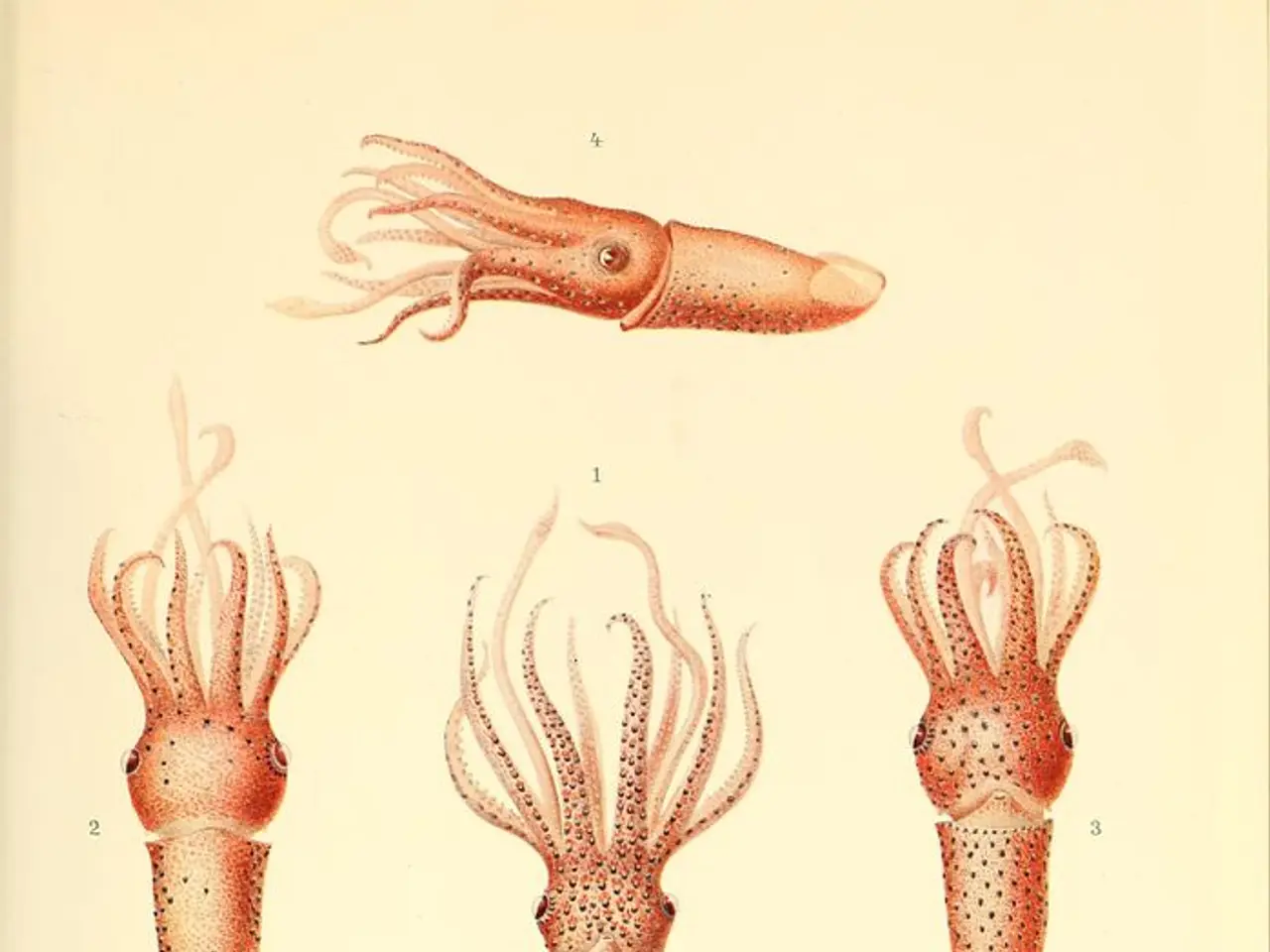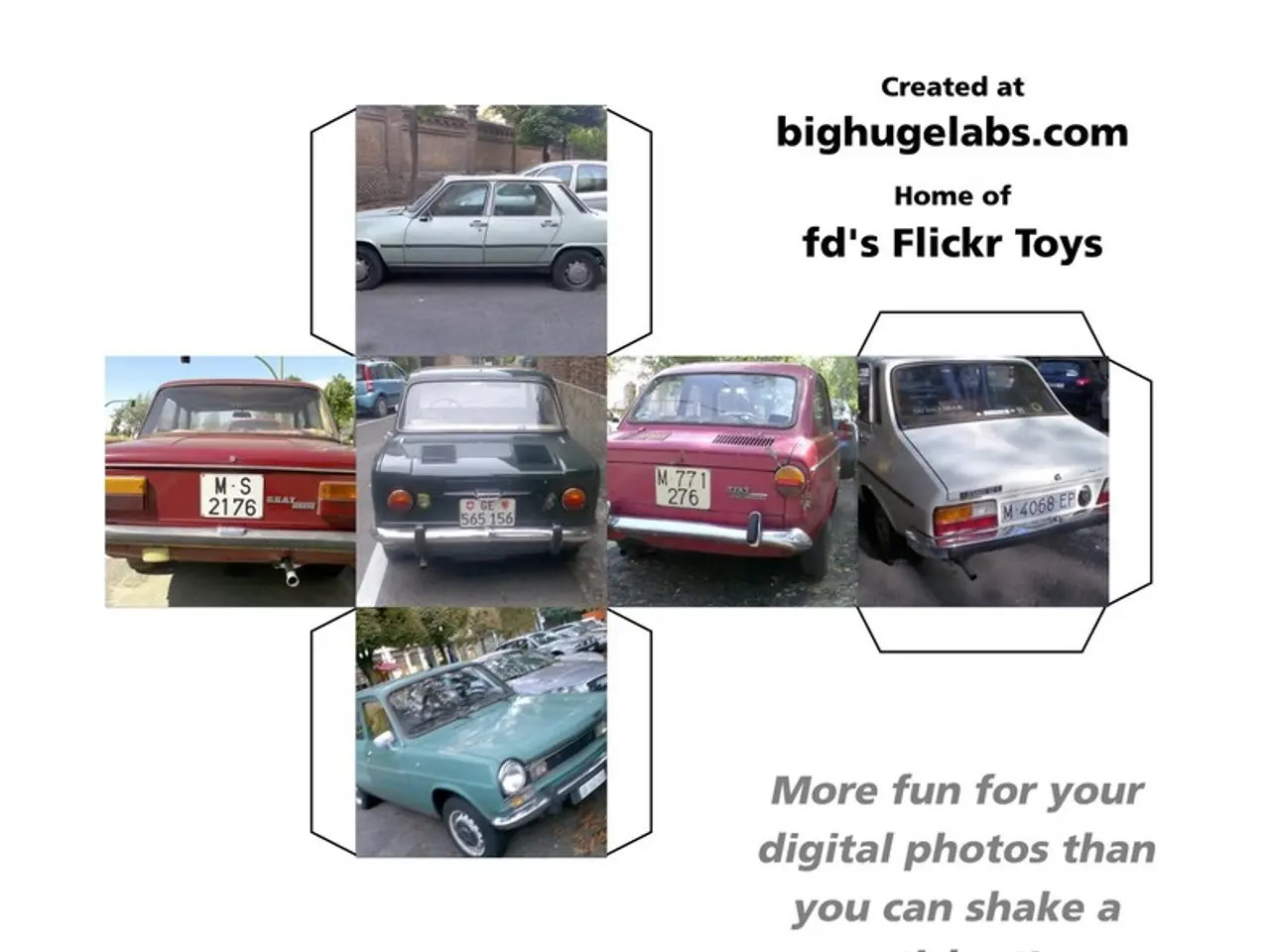Exploring the Influence of Biology on Industrial Innovation
In the heart of Germany, three innovative companies are pushing the boundaries of robotics, drawing inspiration from the natural world to create soft, adaptable, and gentle robotic systems. These companies, including Festo, are focusing on technologies that mimic the camouflage abilities of the octopus and the flexible movements of fish fins.
Festo, a family-owned company from Esslingen am Neckar, is at the forefront of this movement. The company's latest innovation, the TentacleGripper, is a prime example of this approach. This remarkable robot, inspired by a mobile octopus arm, is designed to handle fragile objects in industrial manufacturing with unparalleled care. The TentacleGripper is moved using compressed air, making it a versatile and efficient solution for various applications, ranging from jackets and scratches to airplanes.
The TentacleGripper, like other soft robotics developed by Festo and its peers, employs soft fluidic muscles and lightweight materials. This design enables smooth, compliant movements similar to biological muscles, allowing robots to handle fragile or irregularly shaped objects safely.
Innovative principles, such as Watt's linkage (seen in bird beaks), inspire the kinematic designs of these robots. These designs maximize opening distances and gripping force within compact, lightweight structures, promoting flexibility and control. Advanced 3D printing technologies, like selective laser melting, enable the production of lightweight, complex structures optimized for force flow and delicate handling, modeled after biological form and function.
Other bio-inspired robotic designs, such as Festo's Flying Ray drone, imitate fish fin movements for agile, smooth operation, demonstrating how bionics inform soft robotics beyond gripping to locomotion and manipulation.
The broader industry context reveals that many companies integrate soft robotics technologies, which emphasize actuators and materials that mimic natural softness and compliance, into systems for safely handling fragile goods in logistics, manufacturing, and prosthetics.
In essence, these German companies are betting on the success of their bionic inventions. By leveraging biological inspirations from octopus arms and fish fins, they develop soft robotic grippers and manipulators that combine flexible, adaptive movements with gentle force application. These innovations, including the TentacleGripper, are additional examples of nature-inspired automation solutions that are part of the ongoing development of advanced robotic technology.
Meanwhile, another German company is working on a project that replicates the strength and flexibility of an octopus's arm, while a third company is developing technology inspired by the octopus's ability to change the texture and color of its skin. These companies, based in Germany, are investing heavily in bionic technology, demonstrating a shared commitment to pushing the boundaries of robotics and creating a more flexible, adaptable, and gentle industrial future.
References:
- Festo's PowerGripper Concept
- Soft Robotics Market Trends
- Logistics and Manufacturing Applications of Soft Robotics
- Prosthetics and Soft Robotics
- Festo's Flying Ray Drone
- Beyond gripping, other German companies are developing robotic designs inspired by octopus arms and fish fins, like the one that replicates the strength and flexibility of an octopus's arm, with the aim of creating a more agile and adaptable industrial future.
- In finance and technology sectors, investments are pouring into these German companies as they pioneer nature-inspired automation solutions, such as the one that mimics the ability of an octopus to change the texture and color of its skin, which could revolutionize industries like prosthetics and logistics with their soft, gentle, and versatile robotic systems.




